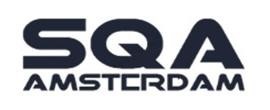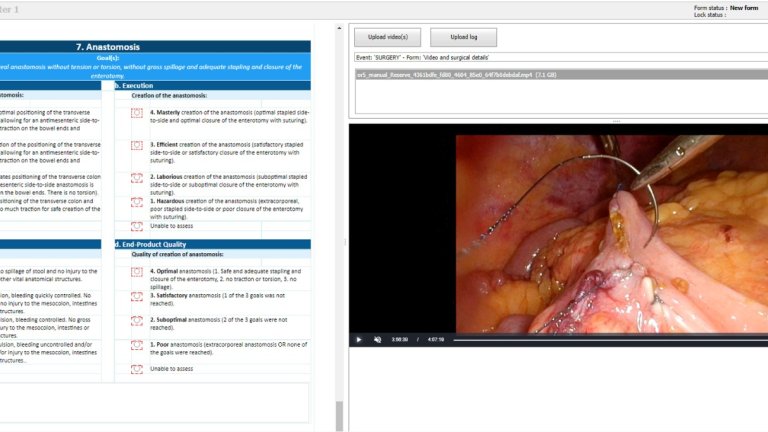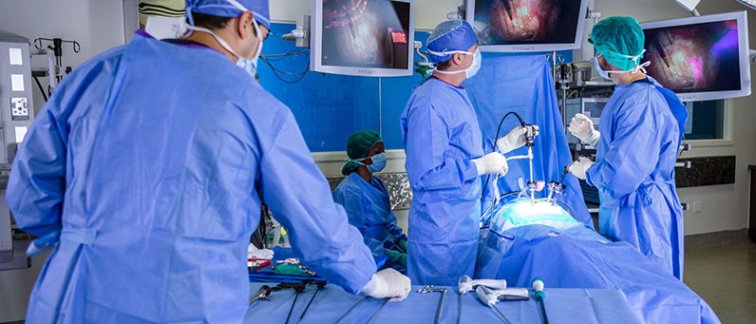Surgical quality assessment (SQA) is an important method to monitor the skills and techniques of medical professionals in the operation room. The aim is to objectively evaluate procedures to identify areas that could be improved.
Currently in clinical practice, surgical competence is not measured objectively and the ability of a professional to independently perform a specific operation is mostly based on subjective assessment. As different surgical procedures evolve over time, it is crucial to know the latest and best evidence-based methods in practice.
Faster learning curve, better performance
A new initiative at the Amsterdam Skills Centre, under the leadership of Prof. Dr. Bonjer and Dr. Tuynman, and executed by Alexander Grüter, will implement a SQA program – ‘SQA Amsterdam’ – to guide surgeons and surgical residents how to objectively assess surgical competence using video recordings of operations at their own clinic. The videos will be uploaded to a platform where it can be rated by other professionals (anonymously) with assessment tools. With this feedback, surgeons can speedily improve their techniques and optimize outcome for the patients.
This SQA technique has already been shown to have a significant influence on clinical outcomes. The Amsterdam Skills Centre is committed to teaching the most up-do-date methods and procedures and is pleased to implement this innovative program. “Today, surgeons in training get a course and then they are thrown in at the deep end at their own clinic. You never know if they will continue to apply what they have learned during such a course,” says Alexander Grüter. "This method of objectively assessing surgery will lead to better performed operations!”
In addition, SQA Amsterdam will also design platforms especially for surgical trials to allow a more objective comparison between two study groups. Many studies (including: Right, COLOR 3, and TIGER) already use this platform. Alexander Grüter: “It is also ideal for collecting medical imaging, like CT imaging or endoscopy pictures, in addition to, of course, the clinical data of the patients. In this way you have all data together on a secure platform.”
For more information contact Alexander Grüter.


A representative image of the surgical quality assessment based on a laparoscopic video.

